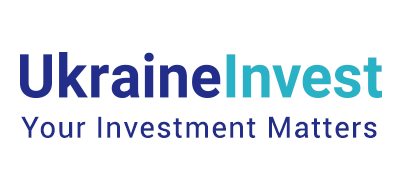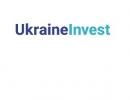UKRAINEINVEST ISSUES THE BUSINESS WEEK, A FREE ON-LINE PUBLICATION CONTAINING A WEEKLY SUMMARY OF IMPORTANT BUSINESS NEWS IN UKRAINE FOR 12 FEBRUARY, 2018.

Agriculture
- Boosted by wheat crops in Canada and Russia, world grain production will set a new record, predicts the UN Food and Agriculture Organization. In this agricultural year, July 2017-June 2018, world production will be 2.64 billion tons, 1.3% more than in 2016. At the same time, grain consumption is to grow by 1.4%. Softening prices, the ratio of stocks to consumption will be 28%, the highest level in 16 years.
- With corn export prices half of their 2011 peak, a recent bump in prices is not motivating some of Ukraine’s biggest corn growers to expand production, Bloomberg reports. Facing strong competition from Brazil, Ukrainian farmers also are hurt by a 14% harvest drop, caused by poor rains. For the next season, Mriya and Nibulon plan to reduce plantings by at least 17%. For this season, Ukraine’s corn exports are down 16%.
- Ukraine’s food exports to the EU grew by 37% last year, more than twice as fast as the 16.3% global growth of Ukraine’s food exports, Olga Trofimtseva, Deputy Minister of Agrarian Policy and Food for European Integration, tells the UBJ. Food sales to the EU amounted to $5.8 billion last year. In addition to big ticket staples -- cereals - $ 1.7 billion, cooking oil - $ 1.4 billion – processed exports experienced high growth. Poultry doubled to $134 million. Confectionery products almost doubled to $38 million. Flour products rose by one third to $96 million. Juices rose by one third to $71 million. And honey rose by one quarter to $99 million.
- Kyiv is expanding a program to subsidize purchases of locally made farm machinery. With $35 million set aside for the program, the government will rebate 25% of the purchase cost this year, up from 20% last year. The localization level of the equipment must be at least 35%. The Ministry of Agrarian Policy and Food estimates this will boost local equipment sales by 20%.
Automotive
- New car sales were up 41% in January, compared to the same month one year ago, to 6,620 according to AUTO Consulting. Analysts say jitters over the exchange rate prompted some buyers to speed up purchases. In 2017, sales of new cars were up 24.5% compared to 2016. Analysts predict a repeat of this growth this year.
- About 425,400 cars with foreign license plates circulate in Ukraine, the State Fiscal Service reports. This represents about 5% of all cars in the country. It is three times the 138,944 new and used cars sold in the country last year. Almost one quarter of the foreign registered cars are from Poland. Most of the cars have violated their temporary stays as owners duck import taxes and paperwork.
- AutoHUB, the new one stop service for importing cars at Odesa seaport, is processing cars at almost four times the rate before the service started, last September. In January, 1,800 cars were processed by AutoHUB, which groups in one building seven government and private agencies, including customs and border guards. Before the center opened, imported cars were processed at the rate of 485 per month.
Banking & Finance
- To get back on track with the IMF, Ukraine must adopt market prices for gas and must create an independent Anti-Corruption Court, GoestaLjungman, the IMF’s Resident Representative in Ukraine, told the European Business Association on Thursday. He predicted that Ukraine’s economy may grow by 3% to 3.5%, this year, well within the consensus range.
- Interest rates may rise again this year if inflation does not come down, say members of the National Bank of Ukraine Monetary Policy Committee. Newly released minutes of the last meeting of the 6-member Committee read: “The majority of the MPC members concurred that the key policy rate might be raised in the near future if there are no strong indications of lowering inflationary pressure.» At that meeting, on Jan. 24, the Committee raised Ukraine’s prime rate to 16%.
- “Ukraine’s investment shortage puts rebound at risk,” warns an article in the Financial Times from Dnipropetrovsk region. High domestic interest rates and skittish foreign investors are blamed for last year’s low GDP growth rate of 2%. Ivan Miklos, an advisor to President Poroshenko and a former Slovak finance minister, says direct investment is only 15% of GDP, far below the 25% needed to get Ukraine growing at 6-7% a year.
- Inflation will taper off to single digits by the middle of 2019, YakivSmoliy, acting governor of the National Bank of Ukraine, predicted Tuesday in a meeting with Rada MPs, Ukrinform reports. Last year, inflation was 13.7%. After raising Ukraine’s prime interest rate two weeks ago, Smoliy lost popularity in parliament. He now is meeting with parliamentary factions to win support in a confirmation vote, expected for the end of this month.
Business
- At the American Chamber of Commerce meeting, Prime Minister Groysman urged attendees to look for opportunities among the hundreds of state companies to be privatized this year. He said the government has 35 pro-business “laws in the pipeline,” including laws to protect intellectual property and to allow concessions in public service areas. He said: “I believe economic growth of 5 -- or even 7 percent -- is absolutely possible.”
- A British company, Stopford Projects Limited, is to build an $85 million waste recycling plant for Dnipro, Ukraine’s third largest city with almost 1 million inhabitants. The project is self-financed and will be the property of Stopford for 15 years after completion.
- Internet advertising rebounded by 40%, to $93 million last year, reports the All-Ukrainian Advertising Coalition. While still below the 2013 peak, advertising increased across the board last year: TV up 29%; radio up 20%; and newspapers up 18%. On the Internet, half the spend was for banner adverting.
Energy
- Ukraine crude oil output continued its decline, dropping by 4.2% in 2017 to 2.1 million tons, Energy and Coal Industry Ministry reports. In 2016, oil production also dropped, falling by 7.5%.
- A 16 MW solar power plant has been commissioned in Vesele, Zaporizhia, about 50 km north of the Black Sea coast. The owner, Solar Park Pidhorodnye, previously built two small solar plants with a total installed capacity of 1.6 MW in nearby Dnipropetrovsk.
- About 2,000 households switched to solar power last year, taking advantage of a high ‘green’ tariff for sale of electricity to the grid. In a tariff guaranteed through 2030, household solar electricity sells for 18 euro cents the kWh. In the last three years, households have invested $65 million in solar systems, according to the State Agency for Energy Efficiency and Energy Saving.
Transportation
- Container trains will expand across Ukraine this year, alleviating truck traffic on highways, YevgenKravtsov, acting CEO of the Ukrainian Railways, predicts to the UBJ. On Wednesday, Kravtsov inaugurated a new weekly container train between Odesa and Kyiv. Later this year, he said, container trains will start from Odesa to Dnipro and from Kharkiv to Kyiv. One 56-container train replaces 56 tractor trailer trucks.
- Antonov would like to convert its Gostomel airport into a major cargo hub and aircraft service center, Oleksandr Krivokon, Antonov’s president, told Liga.net. At present, Gostomel serves both functions, but in lesser capacities. The airport’s major attraction is its 3.5 km concrete airstrip and its location -- 36 km northwest of central Kyiv. With about 10% of Ukraine’s population, Kyiv is the destination for 40% of international cargo. Prime Minister Groysman proposes turning the airport, a 45-minute drive from central Kyiv, into a center for discount and charter flights.
You can find more news from UkraineInvest here.


